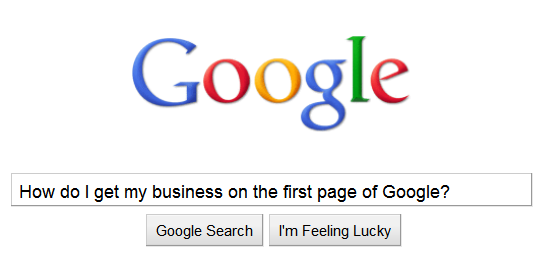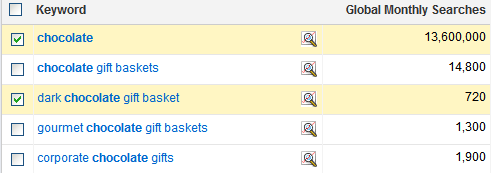
“Google” is a Typo
Google is one of those words that just flies off our tongues these days. But what does “Google” mean? I ask the business owners I work with all the time, and most haven’t a clue, so I thought I’d clear it up.
Google is actually a typo. Or a misspelling. Either way.
The original word is “googol.” Oddly enough, the word was coined in 1938 by the 9 year old nephew of a mathematician, Edward Kasner. There are probably several versions of this story floating around, but the word is, the new phew (Milton) advised that a number so large should be called something silly, and offered the name “googol.”
How large a number is a googol? Bigger than you can imagine. It’s so big, it’s larger than the number of elementary particles in the universe. Last time I checked, that was pretty big. A googol is the number 1 followed by 100 zeros.
So when the founders of Google were registering the domain name on GoDaddy or whatever they were using, they typed “Google” and it was available. They liked it so they took it. Works for me.
Google: An Essential Part of Off Page SEO
What does the name of Google have to do with Off Page SEO? Not much. But Google itself is essential. Because Google indexes content, and serves that content up based on a user’s provided search terms, one may leverage Google to showcase their web presence. It also is a type of consumer analysis in that one can observe trends and identify words and phrases having a high volume of search requests.


Sites like Facebook and Twitter are indexed very often by Google because of the enormous amounts of new information these sites add daily. For more reasons than one, Facebook and similar social networks quickly make it to the first page of a Google search for relevant terms. If you have 20 social media profiles, and you list your website address on them, a trail is being laid right to your website’s “front door.”
Incorporating Google for an Effective Marketing Plan Online
Content. The most important way to get on the first page of Google (and other search engines) is to provide well-written content. All web content should utilize keywords (words Google uses to link a request to a specific website or resource on the web. If you know what keywords your potential customers are searching for already, these words should be incorporated into written articles, blog posts, status updates, etc., whenever possible (but within reason).
A great feature of the web is that content stays up for a long time. Beats that flyer tacked up on a telephone pole that withered into a soggy mess in the last rain! Even better is that there are plenty of free places on the web to post content.
Long Tail Keywords
A long tail keyword is simply a more specific keyword that a well-educated potential customer would be using in their search efforts. When I say “well-educated” I don’t mean a college graduate. I mean they have done their homework online, and they know what they are looking for. Here’s some examples:
Long Tail Keyword: Dark Chocolate Gift Basket

The picture above is a screen shot from Google’s Adwords Tool. Someone searching for the phrase “dark chocolate gift basket” is probably searching for something they are ready (or very soon will be) to buy. So while there are less people searching, they are also hotter prospects. The other two words listed are also long tail keywords.
Long Tail Keyword Research and Social Media for Business
Social media for business boils down to one thing. Being visible on the 1st page of Google for a relevant search term. Another way to say that is, be one of the 10 vendors actually in the room with the prospect who’s ready to buy.
If you aren’t showing up on the first page of Google for something you sell, you just aren’t in the same room as the prospect. Again, we come to the subject of content. By ensuring the keywords in your articles, status updates and tags contain long-tail keywords that are relevant to your customers, you have a better chance of showing up in the “sales” room. Of course, before you are able to put together appropriate content, the long tail keyword research needs to be done by an experienced marketer. Otherwise a lot of work might go into creating content that is hiding you, not helping you, on Google Searches.
Don’t have a website or a blog? Here’s a few places to start your online presence that show up well on Google searches:
- Facebook Business Page
- Google Places Listing
- Yelp
- Biznik
The reason I suggest all of the above sites is because they work insanely well with Google in terms of showing up on search results. Obviously Google Places is part of Google, but the other sites are either geared to be optimized or have a special deal with Google or both.
Of course, there are many other sites, but the sites above are good places to start. Having optimized content is an important factor in an overall campaign, which can and should include traditional media to build awareness, especially if your online presence is new. Try to do both, but at least leverage the free tools at your disposal.
